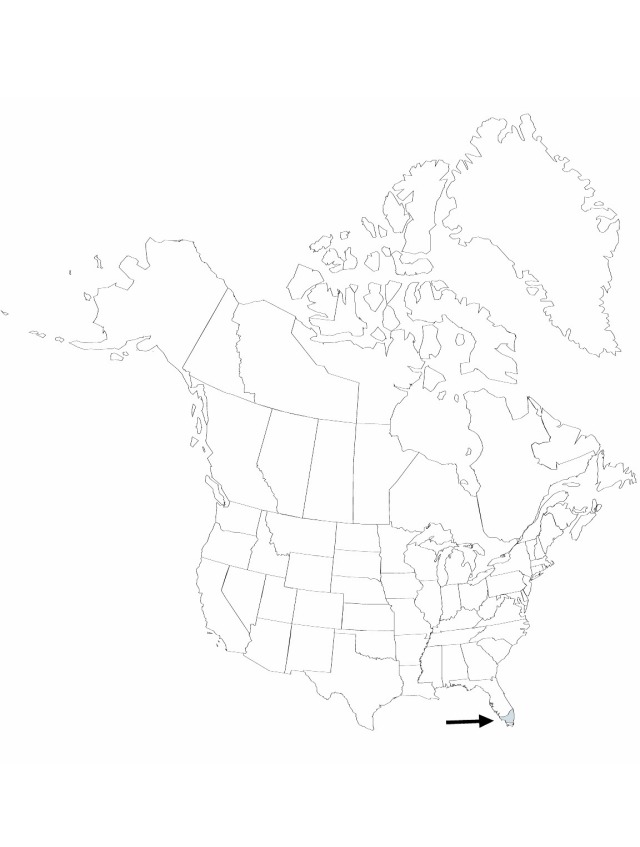Plants single or clustering, flowering to 50 cm. Stems short. Leaves 20–40, many-ranked, erect to spreading, gray, 30–45 × 1–2.2 cm, appressed-grayish-scaly; sheath dark rust-colored, broadly elliptic, conspicuously inflated, forming small pseudobulb, 3–4 cm wide; blade narrowly triangular, leathery, channeled to involute, apex attenuate. Inflorescences: scape conspicuous, erect, 15–35 cm, 3–6 mm diam.; bracts densely imbricate, erect to spreading, like leaves but gradually smaller; sheath of bracts narrowing gradually into blade; spikes erect, 2-pinnate, narrowly elliptic, compressed, 2–6 × 1–1.5 cm, apex acute; lateral branches 3–13. Floral bracts imbricate, erect, red, broad (covering all or most of rachis, rachis not visible at anthesis), elliptic, keeled, 2–2.5 cm, leathery, base not visible at anthesis, apex acute, surfaces glabrous, venation even to slight. Flowers 5–40, conspicuous; sepals with adaxial pair connate, lanceolate, keeled, 2–2.4 cm, thin-leathery, veined, apex acute, surfaces slightly scaly; corolla tubular, petals erect, violet, ligulate, to 5 cm; stamens exserted; stigma exserted, conduplicate-spiral. Fruits to 3.8 cm.
Phenology: Flowering winter–summer.
Habitat: Epiphytic, usually on Taxodium, in swamps and well-lit hammocks
Elevation: 0–30 m
Discussion
Tillandsia × smalliana has usually been misdetermined as T. polystachia (Linnaeus) Linnaeus, a common Caribbean species not known to occur in Florida.
The probable parentage of Tillandsia × smalliana is T. balbisiana Schultes f. × T. fasciculata Swartz.
Selected References
None.
